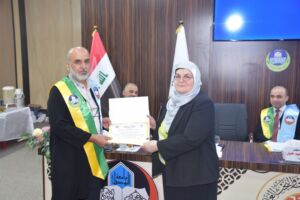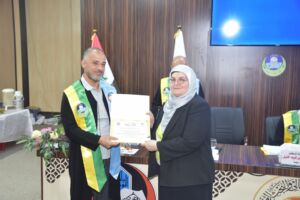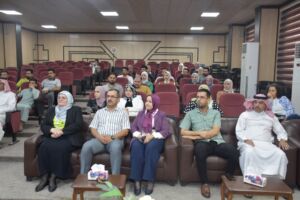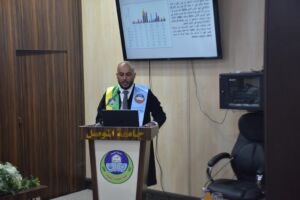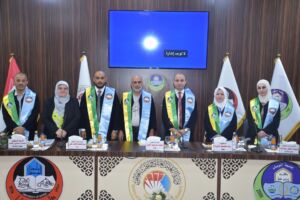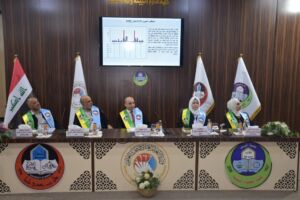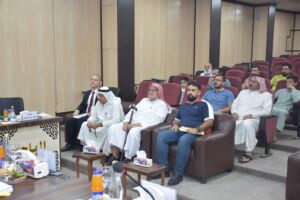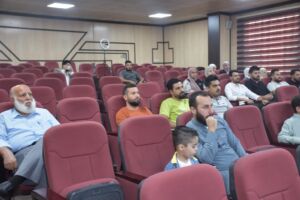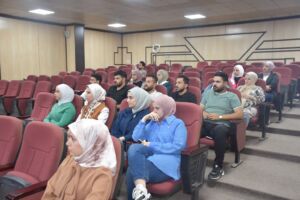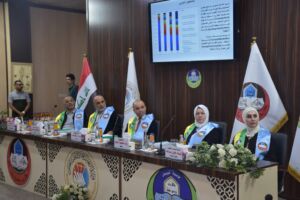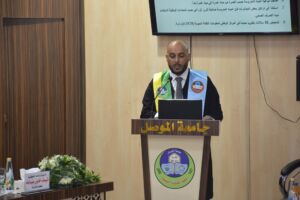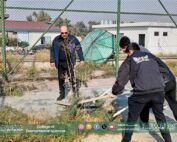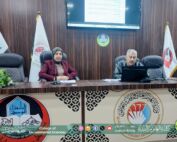24 July، 2024
A master’s thesis in the College of Environmental Sciences discusses the environmental impact of various liquid discharges on the quality of Tigris River water in Mosul city..
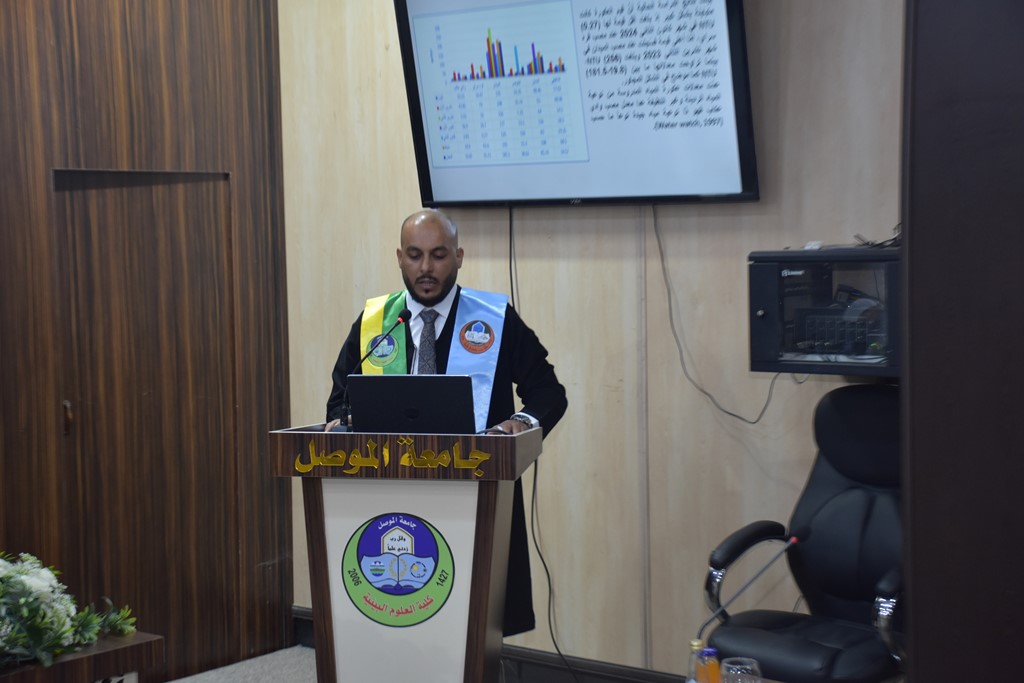
Under the patronage of the President of the University of Mosul, Professor Dr. Qusay Kamal Al-Din Al-Ahmadi, and in the presence of the Dean of the College of Environmental Sciences, Dr. Yusra Majeed Al-Shaker, the discussion of the master’s thesis of the student Ramadan Ahmed Muhammad Al-Hadidi took place this morning, Wednesday, July 24, 2024, on his thesis entitled
“Evaluating the environmental impact of various liquid discharges on the quality of Tigris River water using molecular and physicochemical indicators within the city of Mosul”
The discussion committee was headed by Professor Dr. Muhammad Ibrahim Khalil / College of Environmental Sciences and the membership of Assistant Professor Dr. Abdul-Moneim Muhammad Ali / College of Science and Lecturer Dr. Rawaa Mahmoud Daoud / College of Environmental Sciences and the membership and supervision of Professor Dr. Mahmoud Ismail Muhammad / College of Science and Assistant Professor Dr. Shaima Khalil Abdullah / College of Environmental Sciences.
The study included evaluating the sewage estuaries that are discharged into the Tigris River within the city of Mosul without prior treatment according to the Iraqi specifications and diagnosing the bacterial community that may exist in them using the latest international technologies.
The study aimed to evaluate the physicochemical properties of some valleys and sewage estuaries in the city of Mosul and study the seasonal impact on the change in the properties of the water of these valleys and estuaries.
The study recommended conducting environmental studies on aquatic organisms in the Tigris River within the city of Mosul and using them as a vital tool to determine whether or not the river is polluted, as well as conducting environmental studies at the points where the outlets meet the Tigris River within the city of Mosul and determining their suitability for the coexistence of aquatic organisms, while continuously monitoring the quality of sewage wastewater and conducting extensive diagnostic studies on the bacterial community that may exist in sewage wastewater in the city of Mosul.
Division of Media and Government Communication
College of Environmental Sciences
Wednesday 24 July 2024
